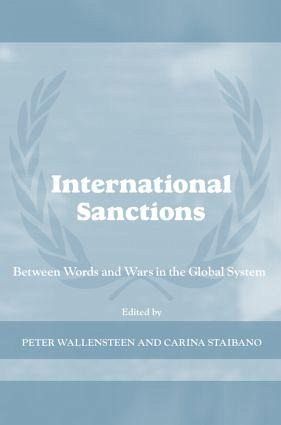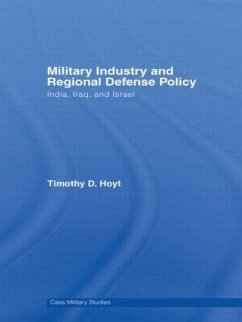
International Sanctions
Between Wars and Words
Herausgeber: Staibano, Carina; Wallensteen, Peter
Versandkostenfrei!
Versandfertig in 1-2 Wochen
81,99 €
inkl. MwSt.

PAYBACK Punkte
41 °P sammeln!
The main theme of the book is that the new types of sanctions constitute a challenge to the international system. First, there are more of the targeted sanctions, including financial, travel, aviation, special commodity and arms sanctions. Furthermore, there are considerable but varied practices in implementation. Also there are now sanctions by new actors (regional bodies, international organizations). These all put new strains on international bodies in carrying out sanctions or getting member states to work together in these efforts. These challenges are analyzed in this volume, with some e...
The main theme of the book is that the new types of sanctions constitute a challenge to the international system. First, there are more of the targeted sanctions, including financial, travel, aviation, special commodity and arms sanctions. Furthermore, there are considerable but varied practices in implementation. Also there are now sanctions by new actors (regional bodies, international organizations). These all put new strains on international bodies in carrying out sanctions or getting member states to work together in these efforts. These challenges are analyzed in this volume, with some examples, but mostly from a generalist perspective. A completely novel aspect is that this volume also includes studies of the difficulties that are met by targeting actors, their way of managing the situations, and most interesting, the human rights of such actors.














